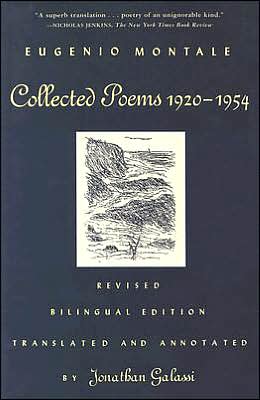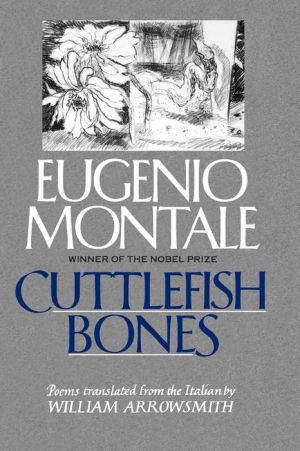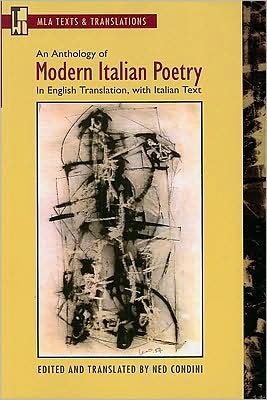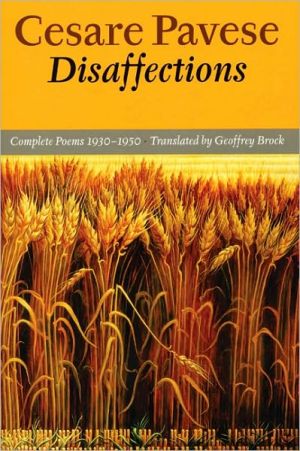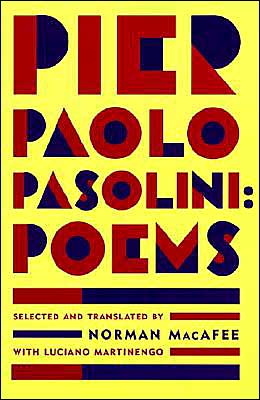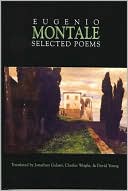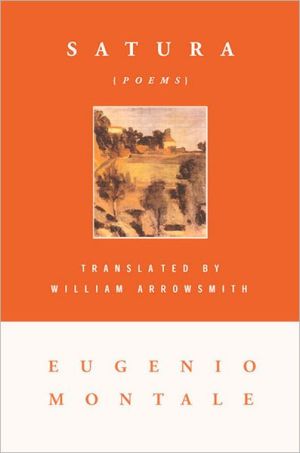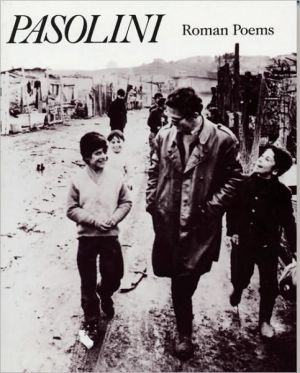Collected Poems, 1920-1954
Winner of the Weidenfeld Translation Prize and the Premio Montale, an acclaimed translation of Italy's greatest modern poet\ Eugenio Montale is universally recognized as having brought the great Italian lyric tradition that begins with Dante into the twentieth century with unrivaled power and brilliance. Montale is a love poet whose deeply beautiful, individual work confronts the dilemmas of modern history, philosophy, and faith with courage and subtlety; he has been widely translated into...
Search in google:
Acknowledged as the most influential Italian writer since Gabriele D'Annunzio, Nobel Prize winner Eugenio Montale (1896-1981) brought the Italian lyric tradition, beginning with Dante and continuing through Petrarch, Manzoni, and Leopardi, into the 20th century. His work deals courageously and subtly with the political, historical, and existential dilemmas of the modern era, and his deep attraction to Anglo-American poetry has in turn found echoes in two generations of American and British poets. Now, in his new translations of Cuttlefish Bones, The Occasions, and The Storm and Other Things , Jonathan Galassi, editor in chief of Farrar, Straus & Giroux and president of the Academy of American Poets, presents the clearest, most accurate, and most convincing translations yet made of Montale's major work.The New Yorker - Edward HirschHe is the Debussy of modern poetry, and in Jonathan Galassi's fresh translation of Montale's main achievement, Collected Poems 1920-1954, the English-speaking reader is given clear access to a body of work that has a severe majesty....It is a joyous fulfillment of Italian poetry.
On the Threshold4Movements6Cuttlefish Bones36Mediterranean64Noons and Shadows80Seacoasts140The Balcony148Motets190IFinisterre266IIAfterwards298IIIIntermezzo308IVFlashes and Inscriptions320VSilvae352VIPrivate Madrigals386VIIProvisional Conclusions404Reading Montale413Chronology431Notes439Acknowledgments611Index of Titles and First Lines613
\ Edward HirschHe is the Debussy of modern poetry, and in Jonathan Galassi's fresh translation of Montale's main achievement, Collected Poems 1920-1954, the English-speaking reader is given clear access to a body of work that has a severe majesty....It is a joyous fulfillment of Italian poetry. \ — The New Yorker\ \ \ \ \ Library JournalThe work of Montale, the great modern Italian poet and 1975 Nobel prize winner, swarms with musical imagery and many-layered wordplay. One of many translators (William Arrowsmith, Cuttlefish Bones), Galassi presents a hefty bilingual edition that contains translations of three works: Cuttlefish Bones (1920-27); The Occasions (1928-39); and The Storm and Other Things (1940-54). Galassi argues that Montale's later work is "secondary" and that poetry from Cuttlefish Bones to The Storm "describes a complete arc, one of the greatest in modern literature." Galassi's edition provides copious critical annotation, a painstaking attempt to explicate Montale's "collage of borrowings." Identifying allusions (the Holocaust, Stalin's purges), influences (Browning, D'Annunzio), sources (Dante, Debussy), and themes ("Crowds in Montale always carry infernal associations"), Galassi's linguistic-textural analysis unravels many elements of the poet's voice: "a sinuous, constantly transforming series of metaphors spiraling around an elusive central core." This marriage of creative literary research and inspired poetic scholarship helps make Montale accessible to English-speaking readers. \ — Frank Allen, North Hampton Community College, Tannersville, Pennsylvania\ \ \ Bernard KnoxMontale's...imagery is drawn from the grim landscape of an industrial city....the elemental forces of nature are evidence of a 'divine indifference' and serve as images of his own desperation... \ — The New Republic\ \ \ \ \ Nicholas Jenkins...[T]he poetry's cadences have taken over my auditory memory, and its enigmatic images have (I hope temporarily) invaded my dreams....[It] is poetry of an unignorable kind. It may not fit in with one's worldview; but somehow it has to be accommodated....[The] preciousness of a few memories, a few signs, a few objects...is what Montale's poetry embodies... \ — The New York Times Book Review\ \
